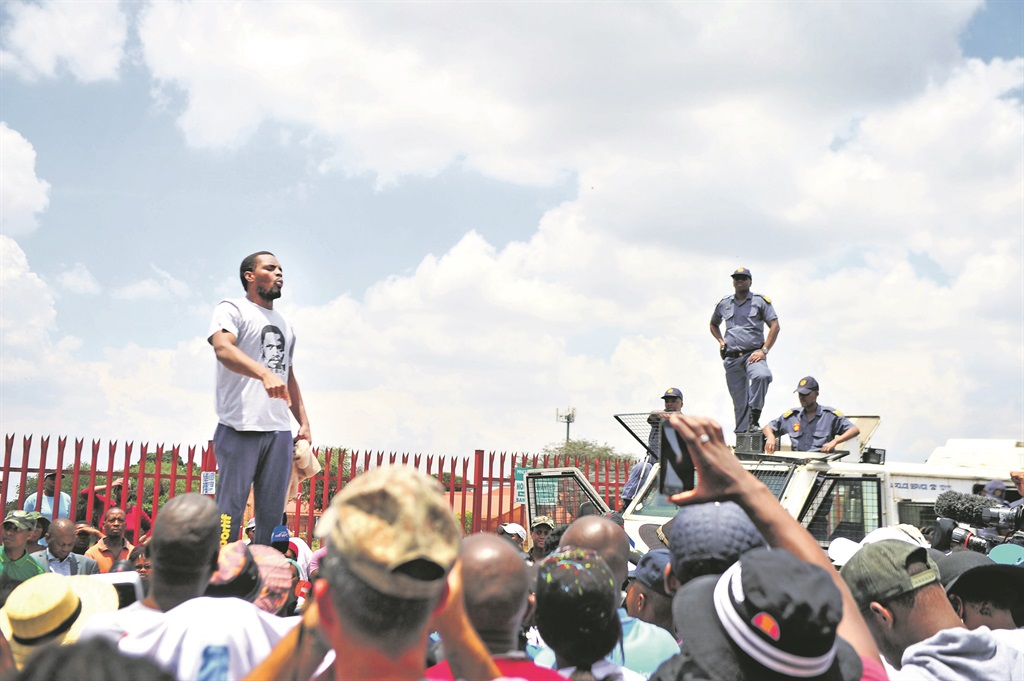
It is January 2018 and I am walking across the piazza at the University of the Witwatersrand.
It is silent and there is a certain calmness and serenity about the place which disturbs me.
I think about what the place looked and felt like in 2015 and I am immediately struck by nostalgia.
Not because the moment was enjoyable and without pain, but because it was pregnant with so many possibilities.
But now, it is as if nothing ever happened.
Students are continuing about their quotidian business.
Activists on the students’ representative council bother themselves with issues such as organising events like the freshers and o-week.
Beyond this are no programmes that speak directly to the continuation of decolonisation.
It is almost as if the university was decolonised immediately when former president Jacob Zuma announced there would be free higher education from January.
During the #FeesMustFall and #RhodesMustFall protests we acknowledged that the struggle for decolonisation was not an easy and clear one.
It is intellectual and complex in its nature and, because of its complexity, it is important that it is treated with the seriousness it deserves.
Failure to do so will only produce “half-baked bureaucratic solutions that have brought us to the cul-de-sac that we are currently in”, as Achille Mbembe suggests.
Although we did not unanimously agree on what a decolonised education means and entails, there are a number of issues that were clear cut.
One is that free education is not only quantitative, but also speaks to academic freedom and having a curriculum that reflects the geographical location of our universities.
At the core of decolonising the curriculum it is important that close attention be paid to the grading system universities use.
This is because, as things stand, the system does not encourage students to pursue knowledge, but turns education into a utility.
It does the opposite of what a university ought to do, which is to equip its students with knowledge that will assist them to improve the societies from which they come and to solve
their problems.
The current system creates students who will be swallowed by corporate South Africa and become workers who serve the needs of corporates, instead of having a yearning to acquire knowledge that will make the world better.
This must be changed because it locks us into the status quo which, at the current juncture, serves the interests of those who control corporate, white people.
The language issue has not been resolved.
By language I do not only mean the languages that people speak, such as Sesotho, Setswana and isiXhosa, but also the concepts and frameworks that are used to speak about the problems we face.
It is true, as it was 60 years ago, that a first-year humanities student will be welcomed by Karl Marx, Max Weber and others who have the same shade as them.
This is the case across the disciplines, the implications being that the ideologies of these old, white, bearded men become the standard against which all thought is measured.
This reduces the ideas and theories of black people to footnote status and sometimes erases black thought as a form of knowledge.
It is therefore important that we begin to develop languages and create new vocabularies that will speak about the experiences of black people without having to go through white people.
To do this, the content of the courses that are taught has to incorporate scholars and intellectuals who descend from Africa.
Africa as both a continent and as a spirit that finds expression in all black people.
The scale of representation in universities still remains tilted.
White people, who are a minority, continue to hold top management positions.
Black people continue to work as cleaners and technicians.
Women are excluded from positions.
It is not enough for universities to change the names of buildings without making sure these buildings reflect what those they were named after stood for.
We cannot have a Robert Sobukwe building where none of his ideas is taught.
We agree that that symbolic victory should indeed be celebrated, but without material change we remain in bondage.
The responsibility to ensure that the changes we desire become manifest rests upon us, in the same way that in 2015/16 we were able to gather in numbers to ensure that our generational mission was fulfilled.
We ought to do the hard work of drafting proposals to our faculties and demanding the change we want to see.
It is our responsibility to insist on being on selection and appointment committees to ensure that the people we want are appointed by the university.
We ought to continue being subversive and challenge our lecturers should we suspect that the content that they feed us might be poisonous to us.
The university is not yet decolonised and the onus rests on us to see to it that the project continues and becomes a success.
Rhodes and fees have not fallen if the black person has not risen.
Dlamini is a former student leader at Wits University




 Publications
Publications
 Partners
Partners








